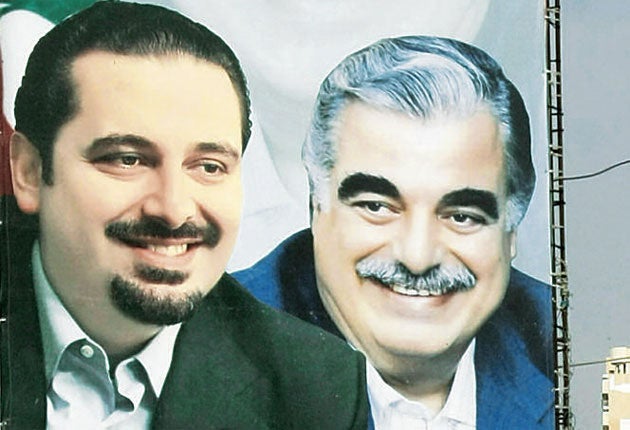Robert Fisk: Slow going by UN in probe on murder of Lebanese Prime Minister Rafiq Hariri
So why exactly has it all taken so long?


Your support helps us to tell the story
From reproductive rights to climate change to Big Tech, The Independent is on the ground when the story is developing. Whether it's investigating the financials of Elon Musk's pro-Trump PAC or producing our latest documentary, 'The A Word', which shines a light on the American women fighting for reproductive rights, we know how important it is to parse out the facts from the messaging.
At such a critical moment in US history, we need reporters on the ground. Your donation allows us to keep sending journalists to speak to both sides of the story.
The Independent is trusted by Americans across the entire political spectrum. And unlike many other quality news outlets, we choose not to lock Americans out of our reporting and analysis with paywalls. We believe quality journalism should be available to everyone, paid for by those who can afford it.
Your support makes all the difference.The UN donkey clip-clops on. Eight years after the murder of former Lebanese Prime Minister Rafiq Hariri – surely the longest murder enquiry in the history of the world – the international tribunal investigating his death has named another Hezbollah supporter as a fifth suspect in the killing. The Lebanese authorities, according to the court, have found that the “security situation” in the southern suburbs of Beirut, after two car bomb explosions, has “impeded” the hunt for four men indicted in 2011 – and now Hassan Habib Mehri, the latest name to be released. But why has it all taken so long? One of the biggest problems is that the information obtained by the Lebanese security authorities is so immense that it takes years to sift through.
The British, for example, sent the telephone numbers of millions of mobile calls made in Lebanon on 14 February, 2005 – the date of Hariri’s murder – to the Lebanese government within days of the killing. These were culled from the RAF-controlled communications centre in Cyprus’s Troodos mountains and included calls made to and from the presidential palace in Beirut; other numbers included the wives of Hezbollah members.
The British communications centre, whose vast domes feature in many photographs of the Cypriot mountains and form the background to a thousand tourist snapshots, has yielded all it can. But ploughing through at least five million phone calls takes years. This work was set back by the assassination of the most proficient of the Lebanese army’s communication’s experts. Then, almost exactly a year ago, Brigadier-General Wissam al-Hassan, the head of the Lebanese Internal Security Force’s intelligence service, was literally liquidated by a bomb in east Beirut. No wonder the wheels of UN justice grind exceeding slow.
From the same report: It took decades for truth to be revealed in Algeria. How long will it take Syria?